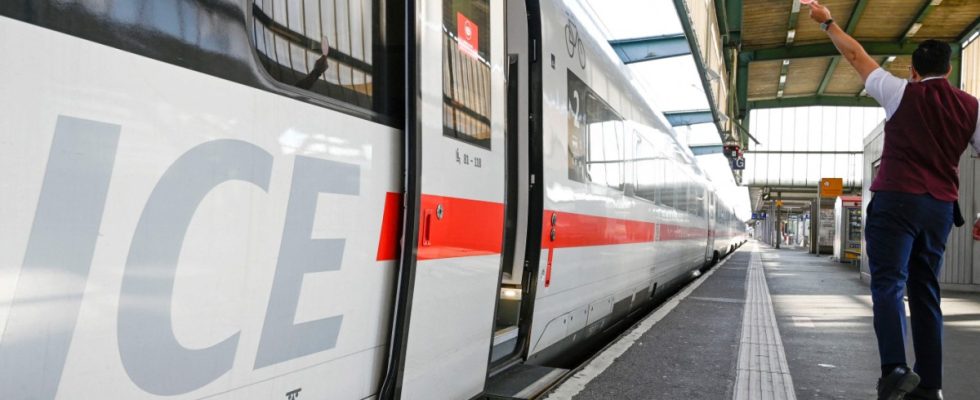First of all, the result is good. The 50-hour strike on the railways is now canceled, which saves a lot of people a lot of trouble. They can finish their weekend visits in peace and go to work or wherever else they want on Monday and Tuesday as usual. A strike does not take place, which for many would have been about as pleasant as a moderate sunburn.
So everything good?
No, unfortunately not. What happened at the weekend between the EVG railway union and the management of Deutsche Bahn is an indictment for both sides. Employers and trade unions like to invoke the “social partnership”, their largely autonomous, sometimes tough, but essentially constructive cooperation.
This cooperation does not work at all with the railways and the EVG. For eleven weeks, the two sides have met again and again to agree on wage increases for the 180,000 railway employees. But nothing happened – until Saturday. It first took lawyers and labor judges to get the supposedly independent collective bargaining partners to move towards each other at least a little.
The EDC’s determination seems misguided
This is all the more annoying because this case is not about a strike by the employees of some chip shop. Their customers can simply buy their fries elsewhere. But when the train goes on strike, it affects around five million people a day, many of whom are forced to either stay at home or switch to climate-damaging cars.
The labor judges managed to persuade Bahn and EVG to make a comparison. A comparison that obliges both sides to do what should actually be self-evident in view of their great responsibility. Namely, that they are now finally negotiating in a goal-oriented and speedy manner. The fact that this has not been successful so far has a lot to do with the seemingly defiant attitude of the EVG. In this collective bargaining round, she is fighting for the right thing: In view of the high inflation, she wants to push through significantly more money for conductors, train drivers, maintenance workers and others. Many of the employees are poorly paid, so it is good that the unionists are pursuing their goal with great determination, even calling strikes if necessary.
But the EDC’s determination looks misguided: it sets the railroad a complicated set of preconditions that managers must meet before unionists even settle for serious negotiations. That’s not how bargaining rounds work. At this point, Martin Seiler, who is conducting the negotiations for Deutsche Bahn, definitely has a point.
However, Seiler also made mistakes. For too long he refused a concession that was important for the EVG: the minimum wage recipients at the railways, such as cleaners and security guards, should now get the salary increases that have yet to be negotiated in full. If Seiler hadn’t been ready to confirm this unequivocally in the courtroom, he could have averted the strike earlier. In this respect, it is the railways’ own fault if some passengers now have problems despite the cancellation of the strike on Monday and Tuesday. It’s not easy to get train traffic up and running again in such a short time.
EVG and Bahn must finally manage to talk to each other rationally, even without lawyers and judges. Otherwise the next big strike is only a matter of time.

